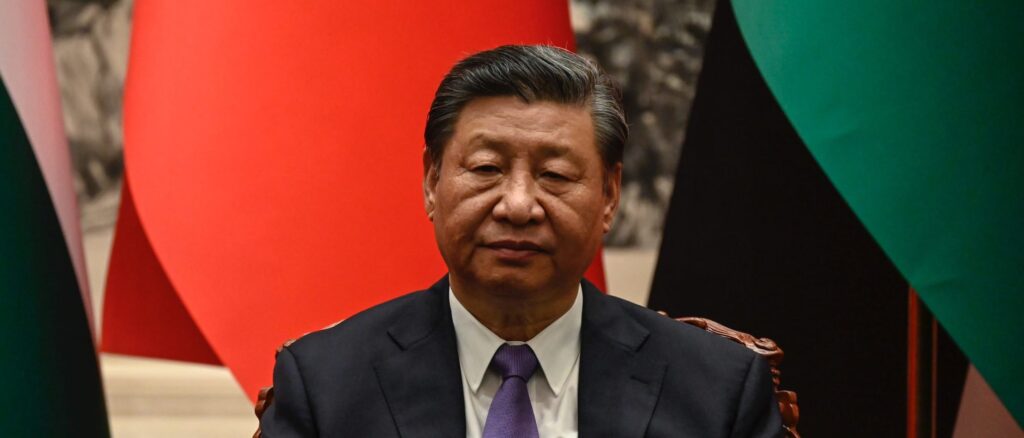The People’s Bank of China is expected to implement its new plan to facilitate credit to struggling sectors while lowering interest rates and loosening capital requirements for banks in an effort to bolster its struggling economy, according to Bloomberg.
The plans from China’s central bank follow a move on Wednesday to loosen restrictions on the amount of funds that a bank must hold, known as the reserve requirement ratio (RRR), in an effort to free up more cash for businesses, according to Bloomberg. The move from Chinese authorities comes as the country’s economy has failed to return to economic growth levels that it achieved before the COVID-19 pandemic, most recently recording an economic growth rate of only 5.2% as a debt-laden real estate sector and a massive outflow of foreign capital drag on the economy. (RELATED: Hollywood Spent Years Kowtowing To Beijing. Now, Their Movies Are Tanking)
“RRR cuts will likely be more infrequent going forward, and only used as a signal tool when markets are performing particularly poorly,” Ding Shuang, chief economist for Greater China and North Asia at Standard Chartered Plc., told Bloomberg. “Structural tools will play an even bigger role.”
The People’s Bank of China has injected ~$145Bln USD of short-term liquidity this week 🇨🇳 pic.twitter.com/uBwqIHVJ77
— ted (@tedtalksmacro) January 24, 2024
It was revealed on Tuesday that the ruling Chinese Communist Party was considering mobilizing the equivalent of $278 billion from offshore state-owned enterprises to purchase shares in the country’s stock market. The CSI 300 Index recently hit a five-year low after semi-steadily declining from a high of 5750 points, down to its current position of around 3500.
The Chinese central bank is planning to create a new department to promote access to financing in certain sectors in an effort to spur growth at companies, according to Bloomberg. The Bank of China is also reducing interest rates on low-cost funds for banks, particularly to enable more than $279 billion for lending to agriculture and small businesses.
The country’s economic growth is being dragged down by the once-booming real estate sector, with the number of property foreclosures in 2023 rising 36.7% year-over-year. Companies responsible for around 40% of Chinese homes have defaulted on their debt since 2021, with other prominent developers, including Evergrande and Country Garden, struggling with huge debts.
As the Chinese economy continues to stumble, foreign investors have increasingly exited the market, with the country recording the third worst foreign capital in China’s history in December after a $3.8 billion outflow. The Institute of International Finance estimates that another $65 billion will be pulled from the country in 2024.
All content created by the Daily Caller News Foundation, an independent and nonpartisan newswire service, is available without charge to any legitimate news publisher that can provide a large audience. All republished articles must include our logo, our reporter’s byline and their DCNF affiliation. For any questions about our guidelines or partnering with us, please contact licensing@dailycallernewsfoundation.org.


